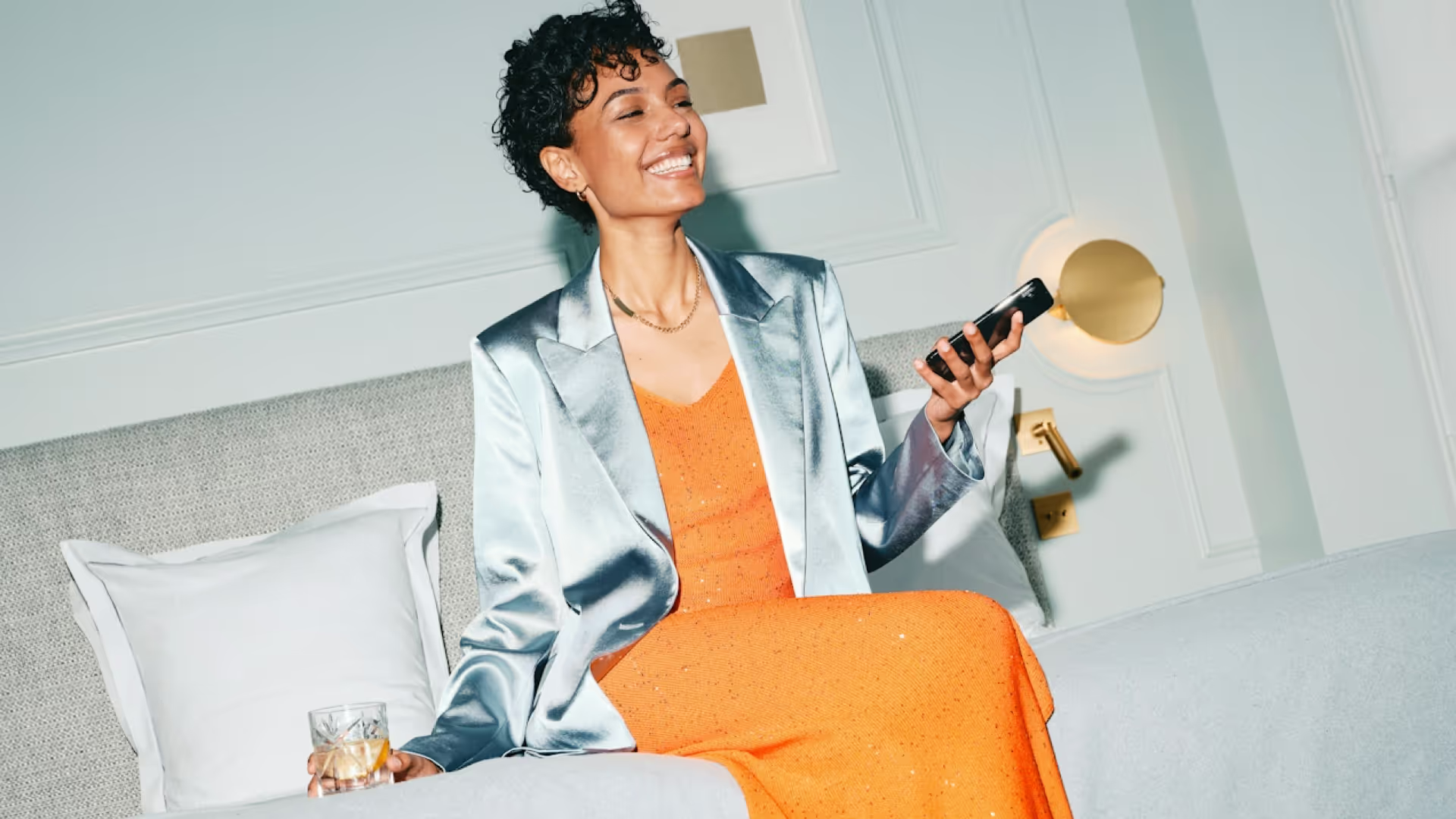Following Black History Month, celebrated in February each year, Women’s History Month highlights the important ways women have influenced culture and shaped history. It’s commemorated every March in the US, UK, Canada and Australia, while around the world additional countries honor International Women’s Day on March 8. Here’s how marketers paid tribute this year to women around the globe while simultaneously shedding light on enduring gender inequalities that must still be addressed.International Women’s DayThe first International Women’s Day celebration occurred in 1911, and in the ensuing decades it’s become a way for brands to both celebrate women’s achievements and rally against inequities like workplace discrimination or gender-based violence. Elvie is a company committed to manufacturing smarter technology for women, including products like a silent electric breast pump beloved by nursing moms and pelvic floor trainers patented to target specific female muscle groups. This year, Elvie launched acampaign called “Smart Bodies”to celebrate all women while attempting to further diversify the tech world, which has been historically male-centric. A powerful 60-second spot features artist and breastfeeding mom Eva Lazarus, spearheading an initiative in the US plus seven additional markets on various social platforms such as YouTube, Facebook, Instagram and TikTok. “Elvie continues to hear from women that they want respect and recognition for their bodies no matter their size, shape or stage of life—and don’t want to be held to societal standards,” said chief marketing officer Aoife Nally. “As we celebrate International Women’s Day, it’s time we bust long-standing taboos and create tech that women deserve.”“Is digital distortion making women more beautiful or indistinguishable?” That’s a questionDove asked Chinese women in its “My Beauty, My Say” campaign, which dovetailed with this year’s International Women’s Day. The personal-care brand found that 78 percent of women in China retouch selfies or add filters to their photos prior to posting, in order to alter the physical characteristics they perceive as flawed and to keep pace with societal pressures that call for flawless online appearances. This phenomenon, known as “face blind” in China, prompted an honest look at the issue of digital distortion via a documentary-style film that follows several women sharing personal stories about body image and self-esteem. “We chose to shoot in a documentary style, with only one chance to capture their real stories,” said executive creative director Sherry Shi. “There were no ‘cuts’ or ‘second takes’ to fix anything, nor any ‘voice-over reading.’” A corresponding photo exhibit in Shanghai will help amplify this effort.Women’s History Month“Period poverty” refers to the fact that no government funding exists in the United States (or many other countries) to support the purchase of menstruation products. New York’s 72andSunny ad agency took it upon themselves toaddress that healthcare discrepancy by creating a fictional cereal called Loopholes. The colorful box looks like other breakfast-food products found on grocery store shelves—but instead of containing a toy prize, each package boasts pads and tampons. “Period products are as necessary as toilet paper and food,” said executive creative director Elaine Cox. “Not having access to them has lasting consequences.” Among them are missed school days, affected job performance and physical, mental or emotional hardship. An accompanying 60-second video was created in partnership with nonprofit groups Period, Free the Period, No More Secrets, Ignite and The Flow Initiative as a means of finding a “loophole” to this problem that affects one in four people. It was promoted via social media plus a panel at SXSW throughout the month of March.One theme of this year’s Women’s History Month is “Women Providing Healing, Promoting Hope,” and it’s the topicFox Corporationis leaning into by honoring the female nurses and doctors who worked tirelessly to combat the Covid-19 pandemic. The media company aired a primetime ad of those medical heroes sharing their experiences via the “She’s a Hero” campaign, which also partnered with the SeeHer movement to promote positive body image and real representation of women and girls in advertising.“Authentically portraying women and girls in media is crucial and we know the positive impact that comes from sharing stories of real women,” said Jeannine Shao Collins, SeeHer president.Additional EffortsApart from honoring women, March is also a time of madness—as related to the March Madness basketball tournaments taking place in the United States. Though focus generally falls on the male players who comprise the National Basketball Association (NBA), this year,Unilever’s Degree antiperspirant brandlaunched its “Bracket Gap Challenge” to raise awareness for NCAA Women’s games. Research shows that only 12 percent of fans filled out a bracket for the women’s tournament last year, so Degree partnered with Women’s National Basketball Association (WNBA) champ Candace Parker to increase gender equity and help draw attention to women’s sports. Participants entering atBracketGapChallenge.comgot the chance to win $25,000 plus an additional $75,000 donated to the women’s athletic program of their choice.Finally,Adidas launched its own user-generated, sports-related campaignthat’s attempting to challenge one of the greatest taboos in the United Arab Emirates by featuring women on billboards in Dubai. Current out-of-home placements boast images of former Emirati weightlifting champion Amna Al Haddad, plusAdidas brand ambassadors such Raha Moharrak, Baraa El Sabbagh and Emmanuelle Bonham. These inspirational figures are shattering glass ceilings on the court, track, field and pitch, and now standing as proud symbols of the many great things women do.
Who We Roll With














